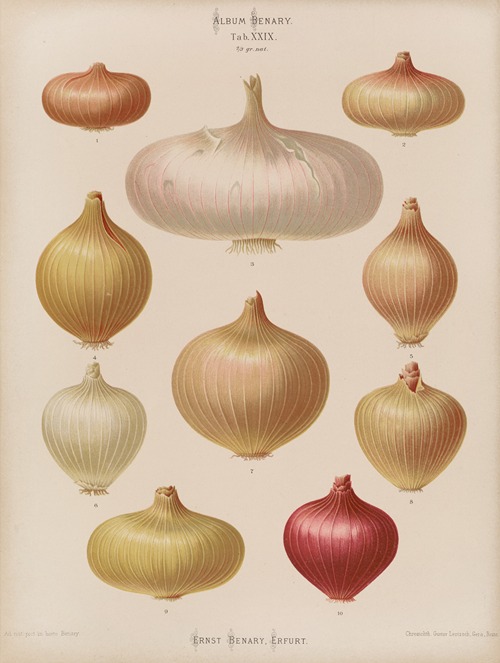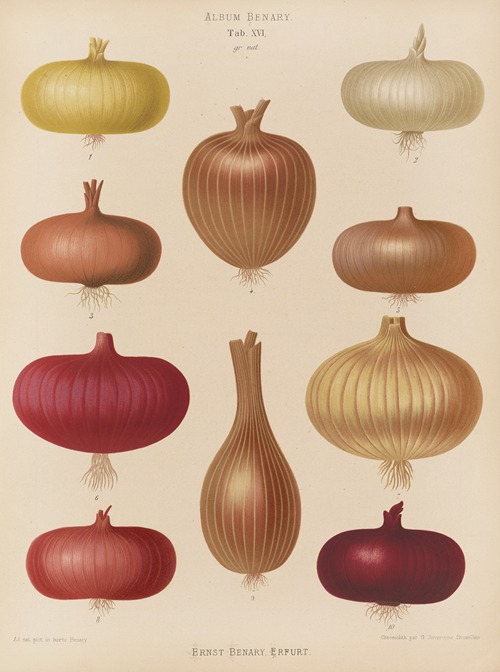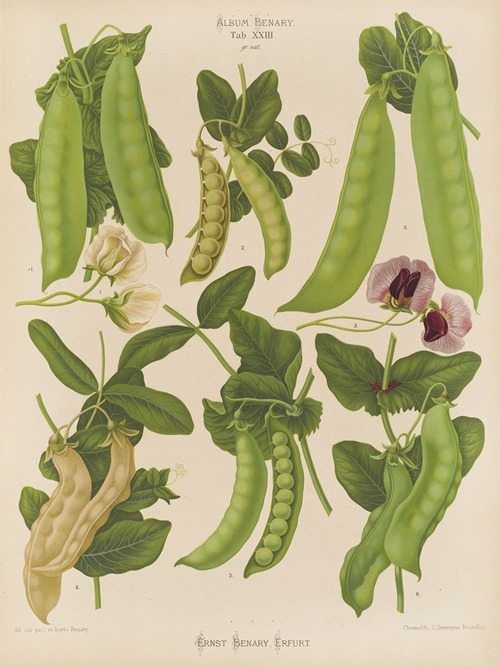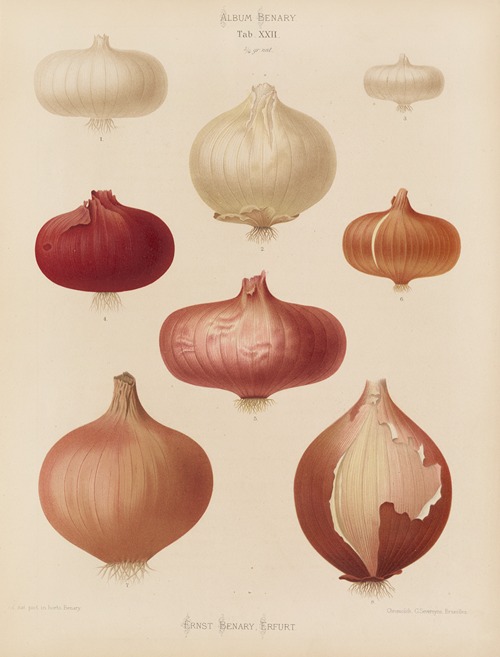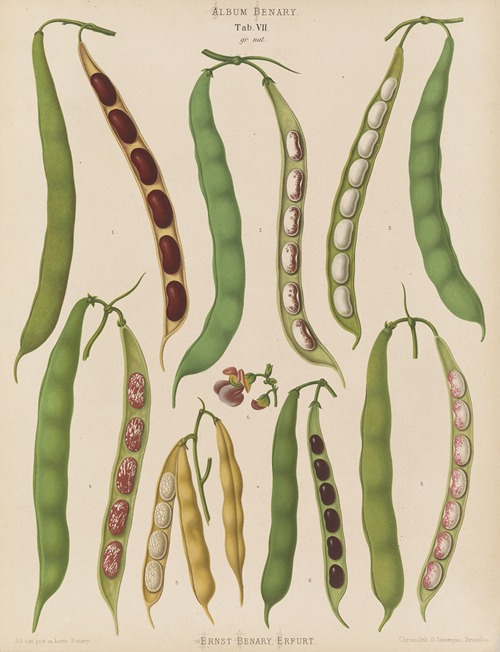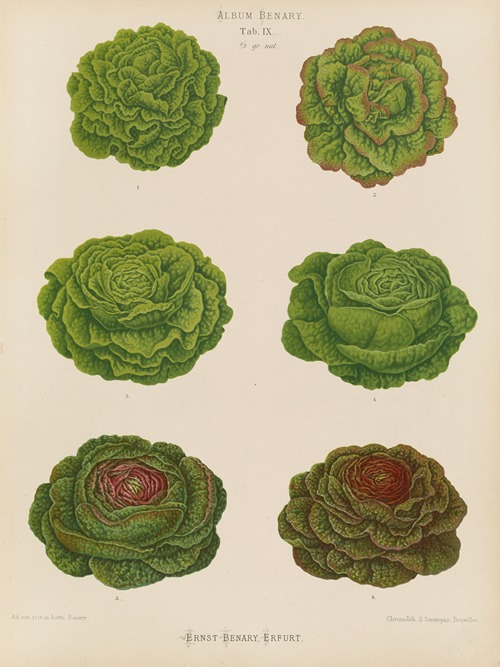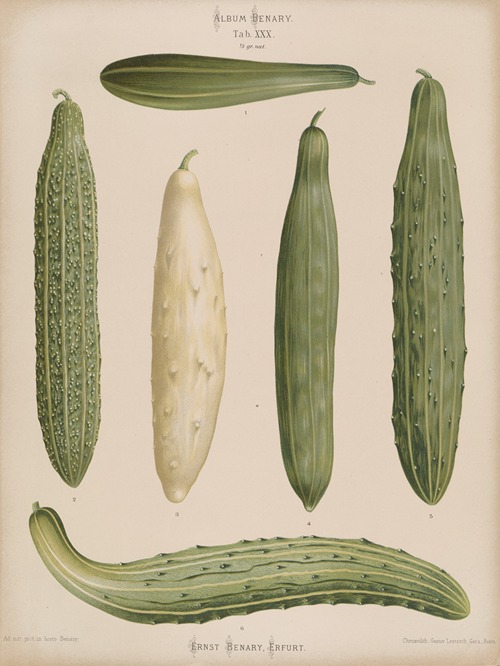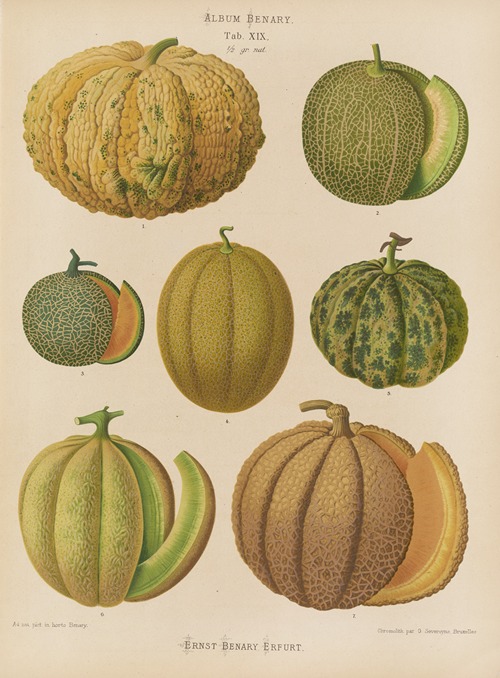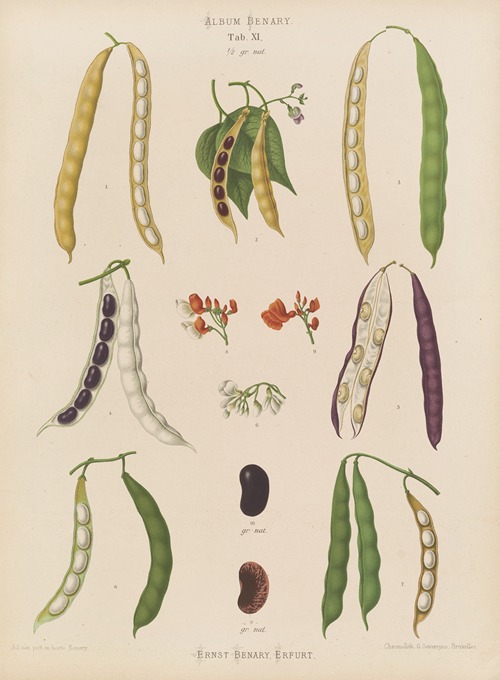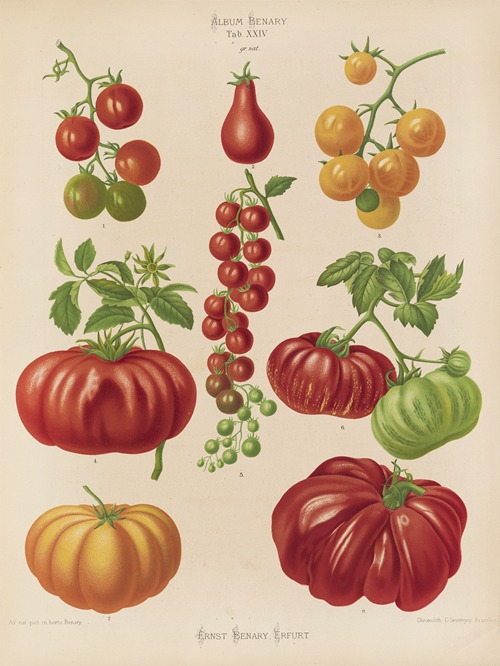
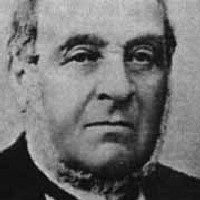
Ernst Samuel Benary was a Hessian horticulturalist in Erfurt.
Benary came from a Jewish family that can be traced on his father's side from the middle of the 18th century in Witzenhausen in northern Hesse. His father Salomon Levy, who had moved to Kassel, was a banker and had adopted the name Benary (son of Löw) in 1807 as part of the Jewish emancipation enforced under Jérôme Bonaparte. His mother also came from a family of bankers, and her father Michael Simon Meilert was the chief war payment agent for Landgrave Wilhelm IX, who later became Elector Wilhelm I.
Due to forced loans to finance the lavish lifestyle of King Jérôme Bonaparte, the father lost his entire fortune and decided to leave Kassel after the restoration of the Electorate of Hesse to move to Erfurt in Prussia. He enrolled his two eldest sons, Ferdinand and Agathon, at the Protestant Ratsgymnasium there and endeavored to obtain citizenship, which was finally granted to him in 1824 by cabinet decree of the King of Prussia after protracted wrangling in the city council. Ernst was the youngest son and the penultimate of a total of nine children.
He graduated from Erfurt grammar school in 1835 in order to devote himself to "artistic gardening". This may have been inspired by his fellow pupils Ernst Biltz, who later became an important botanist and chemist, and Friedrich Carl Heinemann, who also founded an important horticultural business in 1848. He began his training with Friedrich Adolph Haage Jr, the most respected gardener in Erfurt at the time, who gave him a good apprenticeship certificate. After completing his training, he went on a journey that took him to Frankfurt am Main, France (Metz, Paris) and, after a stopover with Haage in 1842, to England (London) in 1843.
In 1843, he founded an independent nursery and commercial nursery in Erfurt. In the same year, he published his first price lists for flower bulbs and flower and vegetable seeds. He initially lived in a rented apartment in Eichengasse. A year later, he moved into the house on the corner of Schlösserstraße and Barfüßerstraße and rented a small garden in Martinsgasse.
In 1845, he married Bella Jonassohn, who came from a respected Hamburg merchant family. Her dowry enabled him to acquire his first property. It was the house Zur Kröte in Brühlervorstadt, later Brühler Straße 40. It stood alone at the time, was one storey lower and served as an apartment for the family upstairs and as an office and warehouse downstairs. He was happily married to Bella Benary for 48 years. The marriage produced seven children, one of whom died young. Five of his children converted to Christianity.
On February 14, 1847, he was granted citizenship by the Erfurt Council. This put him in a position to expand his business. He increasingly specialized in the cultivation and sale of flower and vegetable seeds and, in 1849, became internationally active with the publication of foreign-language catalogs. "Like the seed - like the harvest" became his motto, which was later immortalized on the new store building in Gorkistraße.
In 1863, he had over 1,500 manure bed windows and 13 greenhouses in operation on around 20 hectares. In 1878, he built the still existing Villa Ernst Benary in Gorkistraße, whose rooms were lavishly decorated with paintings. In 1879, a new office building with large storage warehouses was built opposite. In 1893, there were around 6,000 manure bed windows and 20 greenhouses on 50 hectares. Around 100 growers all over the world worked with Benary, and in Erfurt alone 14 independent companies worked for Benary. In the almost 50 years of his management, he was able to develop the company into one of the world's leading suppliers of garden seeds and contributed to Erfurt being nicknamed the city of flowers and Germany becoming a cradle of commercial seed production and systematic plant breeding.
His book Die Anzucht der Pflanzen aus Samen im Gartenbau. A handbook for gardening enthusiasts, gardeners and seed dealers. (Berlin: Parey 1887) was published in its third edition in 1923 and was reprinted in 2017.
Even before the introduction of Bismarck's social legislation, he created his own company health insurance fund. His wife, like the wives of his successors, looked after sick employees and young mothers with their newborns. The company took care of its old people - an auxiliary fund with not inconsiderable funds was the forerunner of the company pension scheme. The working atmosphere was good, and long service and the resulting employee anniversaries at Benary became proverbial in Erfurt.
Benary was also involved beyond the company. He belonged to the middle class, was a city councillor and contributed his knowledge and support to the organization and hosting of numerous specialist congresses and exhibitions.
In his will, he bequeathed considerable sums of money for charitable purposes. He bequeathed several plots of land to the city of Erfurt, which were located between Gothaer Straße and today's Straße des Friedens and covered around 5,700 m². He had previously acquired them from the city as building land for this purpose. He determined that a recreational area should be created here for his fellow citizens and that it should be preserved forever.
Ernst Benary died after a four-day illness on February 19, 1893.
